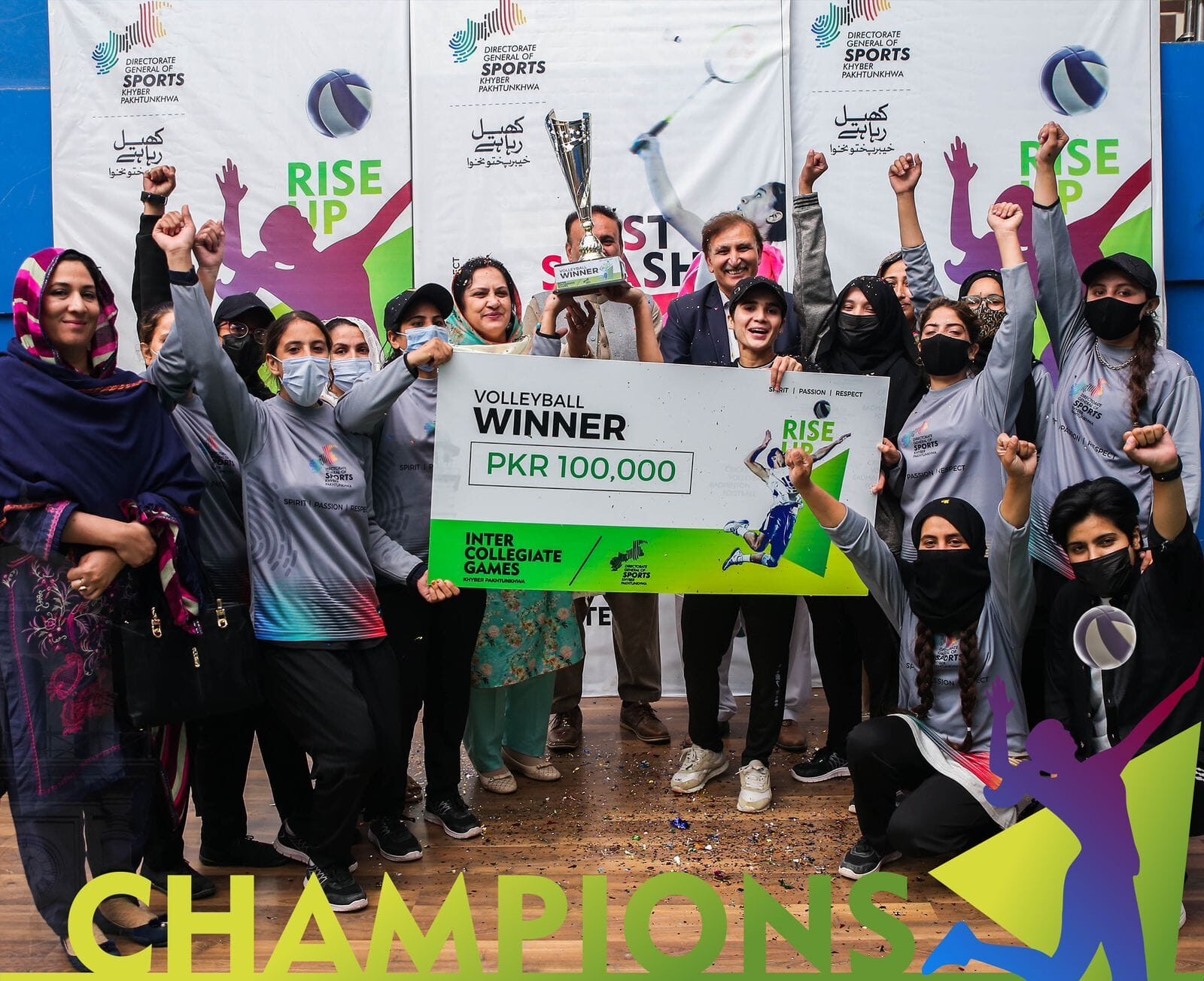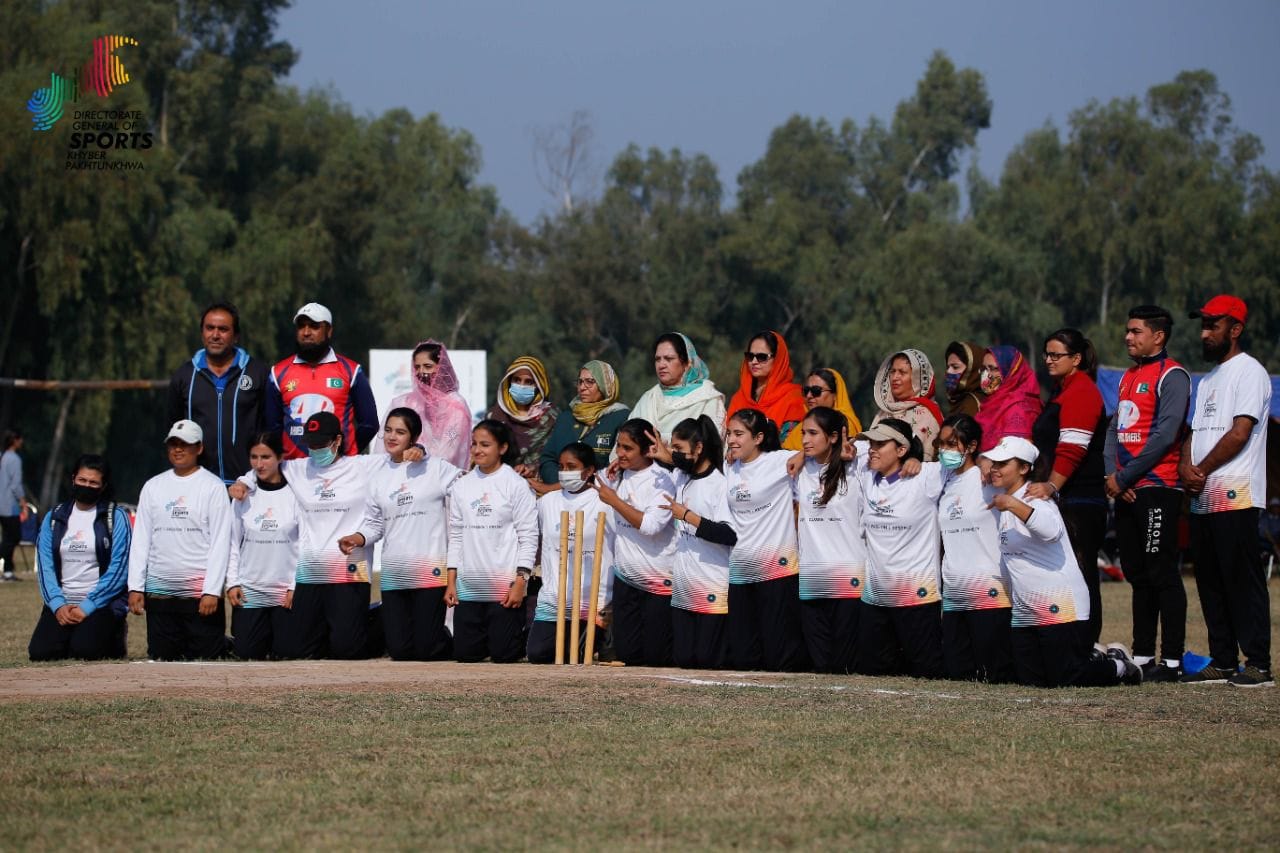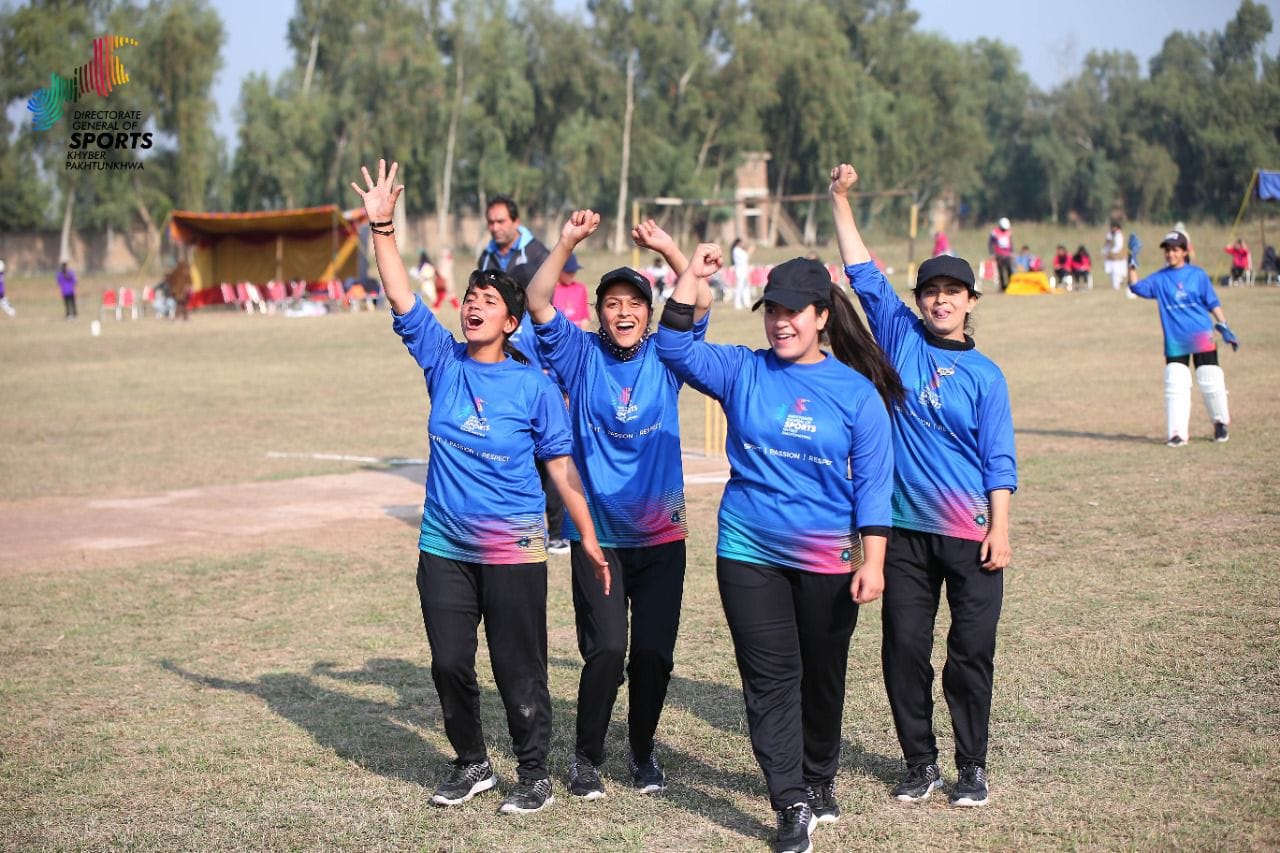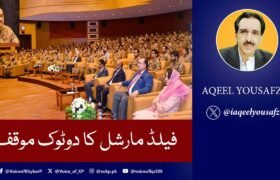By Amna Noreen
Khyber Pakhtunkhwa (KP) has produced many sports legends. Names like Hashim Khan, Jahangir Khan, Jan Sher Khan in Squash, Younas Khan, Naseem Shah, Umer Gul, and Shahid Afridi in cricket, and Arshad Khan in the field of hockey are just a few names from a vast galaxy of sports legends KP has produced since 1947. These athletes and sports stars from KP have not only brought glory to Pakistan in their respective sports fields but have also served as inspirational figures for aspiring athletes in the region and beyond. Their achievements have contributed to the rich sporting history of the country.
KP region has remained under a tribal code since ancient times which has left many socio-cultural stigmas towards female participation in sports and other walks of life. This is why when we see such a galaxy of international sports stars belonging to KP, there is hardly any name of sportswoman in the international sports arena. Public perception and societal stigma surrounding female sports acted as a deterrent. Negative stereotypes and misconceptions about the impact of sports on a woman’s femininity or societal reputation discouraged girls not only from pursuing sports careers but to their families from backing their sports ambitions. This is why when we look at female sports in KP, the list of noticeable players is not even comparable to the male sports stars. Despite facing societal stigmas and cultural taboos, a number of notable sportswomen have emerged on national and international levels in recent years. Maria Toorpakai Wazir and Naseem Hameed are prominent in sports of squash and athletics. Maria Toorpakai Wazir is a professional squash player from South Waziristan who has competed at the international level representing her country proudly while Naseem Hameed, born in Mingora, Swat, KP, gained prominence as a sprinter. She made history by becoming the fastest woman in South Asia at the 2010 South Asian Games, winning the gold medal in the 100 meters.
Despite these heroics at individual levels, female sportswomen in KP are facing multiple challenges to fulfil their ambitions and become a source of inspiration for the nation’s sportswomen just like male sportsmen from KP have done.
Multiple studies have been carried out by academics and experts to explore various challenges females are facing in various spheres of socio-economic development and in sports and arts, particularly. These studies were conducted to explore opportunities to overcome these challenges which mainly prevail due to the peculiar tribal culture of the province predominantly in its rural and tribal areas. The findings of these studies have revealed that, in addition to the dominance of specific religious interpretations and sociocultural environment lack of facilities, law and order situation, transportation, dress code, and financial problems were the main hurdles in the way of female participation in sports.
Many of these are directly linked to the socio-cultural profile of the province which has seen the worst kind of violence in the name of religion during the last two decades. At the same time, the people of the province, for the first time in centuries were exposed to enlightened values due to the new age of communication and as a reaction to growing use of religion and tribal values to justify the gruesome acts of terrorism by militants.
With the proliferation of modern communication technologies like internet, mobile phones and social media many of the old dogmas associated with female participation in sports in KP are changing. The old school of thinking is fading away and is being replaced with fresh ideas of inclusiveness and gender equality. There have been many incidents in recent years, which clearly point towards the fact that despite above mentioned challenges, the socio-cultural landscape of the province is changing allowing women sports athletes to participate on the national level. Around 400 females from KP participated in the 2019 national games. It was a significant event in the recent history of the province as the national games came to Peshawar after almost a decade when the socio-cultural profile of the province underwent a transformation amid violent incidents and security concerns.
Today, the KP government has a dedicated Women’s Sports Directorate working under KP provincial administration. It is responsible for devising a system to boost female participation in sports events and to promote female sports in general. The Directorate has established offices in various cities and is running programs to hunt new female talent in various sports through district-level competitions.
The government’s efforts notwithstanding, KP require a complete sociocultural transformation with respect to female participation in national development along with males. In this regard, the parents, teachers, religious leaders, experts in the field of health and sociology, and different sources of social media should play their role in clarifying the situation in paving the way for the female folk to bring positive change in the situation.




